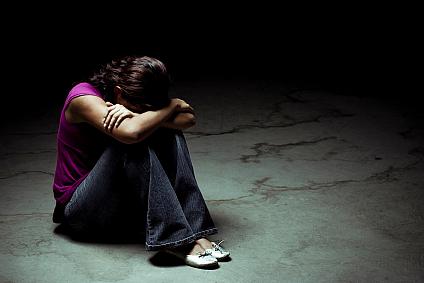Cover It Smart: National Depression Screening Day

Anyone who's ever worked with me knows that I'm not a fan of commemorative health days, weeks or months. But since I've received a number of well-meaning but knee-jerk press releases for this year's National Depression Screening Day on October 6, I thought I'd share some ideas and reporting resources for those of you who might be asked to cover this event.
There are some interesting angles here that can elevate a story on mental health screening well beyond a community news brief. By the way, none of these angles are meant to cast any aspersions on National Depression Screening Day, which is a well-regarded nonprofit effort, unlike some pharma-created disease observances I could mention. And mental health is always a worthy topic, with an estimated 9 percent of Americans defined as clinically depressed, according to the CDC.
1. Is there such a thing as too much screening in mental health? Just as there is controversy over when to perform health screenings such as mammograms and on whom, so too is there disagreement over when and how to screen various populations for depression and other health conditions. Some critics of widespread mental health screening for children and teenagers point out the risk of overmedication based on those screenings.
2. What good is screening without access to follow-up treatment? From the CDC's depression web page:
The U.S. Preventive Services Task Force recommends that health-care providers screen adults for depression when programs are in place to ensure that accurate diagnosis and effective treatment can be provided with careful monitoring and follow-up.
But how are poor or uninsured people in particular supposed to get treatment after being screened? Budget-strapped state and local health departments already are cutting their mental health services to the bone. States also are slashing mental health (and many other) benefits for Medicaid recipients. It's worth asking in your community: what mental health services are still available for the poor and uninsured? If someone did get referred to a professional after being screened, where would they go for help?
3. Mental health screening in the military. National Depression Screening Day refers military personnel to their own online or onsite screening tests. As the U.S. Army in particular deals with troubling suicide rates, its officials are trying to improve mental health screening programs before deploying soldiers. Even so, new research suggests that post-deployment surveys can miss key mental health conditions.
4. Mental health in tough economic times. Rates of depression are rising worldwide, and some experts suggest that we're in the middle of "a silent mental health epidemic" as economic recovery continues to stall. What are people, jobless or not, experiencing in your community? Will a depression screening make any difference – or just reinforce what they already know?
Reporting Resources:
CDC Resource Page on Depression
Mental Illness: Few Families Untouched: Resource Guide from Reporting on Health
Major Depression: A Fact Sheet from the National Institutes of Health

